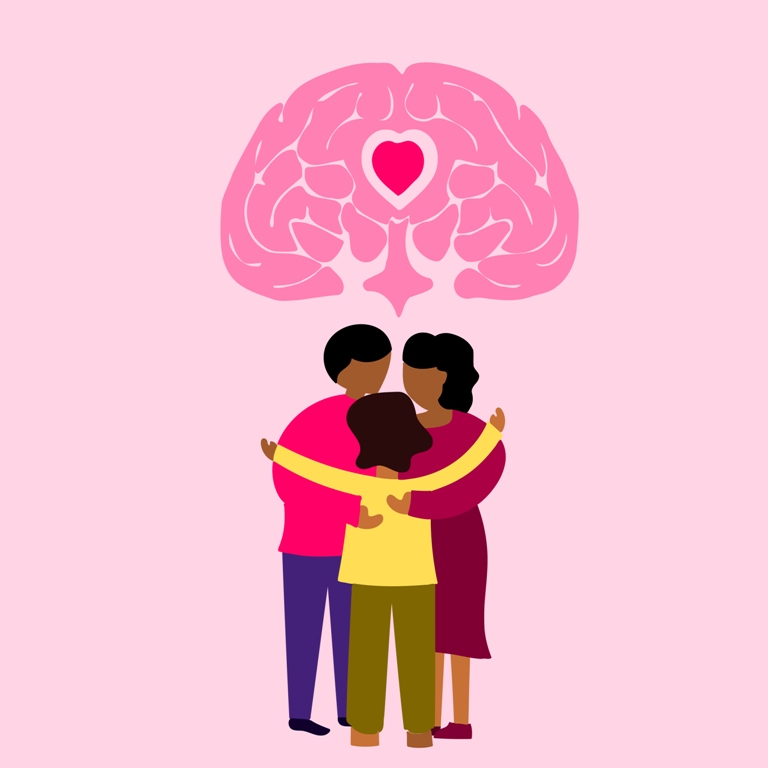Marriage and Mental health
Marriage and mental health are interconnected, and the quality of a marital relationship can have a significant impact on the mental well-being of individuals. Here are some key points to consider:
Support System: Marriage can provide a valuable support system for individuals facing mental health challenges. A spouse can offer emotional support, understanding, and encouragement, which can be crucial in coping with mental health issues.
Communication: Effective communication is vital in any relationship, including marriage. Open and honest communication can help partners express their feelings, concerns, and needs, contributing to a healthier emotional environment.
Stress Reduction: A supportive marital relationship can act as a buffer against stress. Sharing responsibilities and facing challenges together can reduce the overall stressors in life, positively impacting mental health.

Social Connection: Marriage often involves social integration, providing individuals with a sense of belonging and connection. Social support is a known factor in promoting mental well-being and resilience.
Challenges and Strains: On the flip side, marital difficulties or conflicts can contribute to mental health issues. Relationship stress, communication problems, or unresolved conflicts may negatively affect mental well-being.
Mutual Understanding: Partners who understand and respect each other’s mental health needs can create an environment that fosters emotional well-being. This includes being aware of and sensitive to each other’s struggles and providing a safe space for expression.
Seeking Professional Help: If either partner is dealing with mental health issues, seeking professional help together or individually can be beneficial. Couples therapy or individual counseling can provide tools to navigate challenges and improve the overall relationship.
Resilience Building: A healthy marriage can contribute to the development of resilience, helping individuals cope with life’s ups and downs. Resilient individuals are often better equipped to manage stress and maintain good mental health.
It’s important to note that while a supportive marriage can positively impact mental health, it is not a cure for mental health disorders. Mental health issues require professional attention, and seeking help from mental health professionals is crucial when needed. Every marriage is unique, and the impact on mental health varies from person to person. Open communication, mutual support, and a commitment to understanding each other can contribute to a positive marital environment that supports mental well-being.
Role of marriage counselors
Marriage counselors play a crucial role in helping couples navigate challenges, improve communication, and build stronger relationships. Their role is multifaceted and involves various aspects aimed at promoting understanding and resolution. Here are some key roles of marriage counselors:
Assessment: Marriage counselors assess the dynamics of the relationship by listening to each partner’s perspective. They identify areas of concern, patterns of communication, and potential sources of conflict.
Communication Facilitation: Counselors help couples improve their communication skills. This includes teaching effective listening, expressing emotions constructively, and fostering an environment where both partners feel heard and understood.
Conflict Resolution: Marriage counselors assist couples in resolving conflicts in a healthy and constructive manner. They teach conflict resolution strategies, negotiation skills, and ways to compromise.
Identifying Patterns: Counselors help couples recognize unhealthy patterns and behaviors in their relationship. This includes identifying negative communication styles, addressing destructive behaviors, and working towards healthier alternatives.
Setting Goals: Marriage counselors work with couples to establish realistic and achievable goals for their relationship. These goals may relate to communication improvement, rebuilding trust, or addressing specific issues that the couple is facing.
Providing Education: Counselors educate couples about relationship dynamics, the impact of individual behaviors on the partnership, and strategies for maintaining a healthy marriage. This may include discussions about intimacy, expectations, and the stages of relationships.
Promoting Empathy and Understanding: Counselors facilitate empathy and understanding between partners. They help individuals see situations from their partner’s perspective, fostering compassion and connection.
Offering Emotional Support: Marriage counselors provide emotional support to couples as they navigate difficult conversations and confront challenging issues. They create a safe space for couples to express themselves without judgment.
Addressing Individual Concerns: In addition to working on the couple’s dynamics, counselors may also address individual concerns that affect the relationship. This could include mental health issues, past traumas, or personal growth goals.
Homework Assignments: Counselors often assign homework or exercises for couples to practice between sessions. These assignments are designed to reinforce the skills learned in therapy and promote ongoing communication and connection.
Decision-Making Assistance: In cases where couples are facing significant decisions, such as whether to continue the relationship or how to handle major life changes, marriage counselors can provide guidance and support.
It’s important to note that marriage counseling is a collaborative process, and the success of therapy often depends on the commitment and active participation of both partners. Seeking the help of a qualified and experienced marriage counselor can provide couples with valuable tools and insights to strengthen their relationship.
What are the causes of failed marriages?
Failed marriages can result from a combination of various factors, and each marriage is unique. The reasons for a marriage ending can be complex and multifaceted. Here are some common causes of failed marriages:
Poor Communication: Ineffective communication or a breakdown in communication can lead to misunderstandings, unresolved issues, and increased tension within the relationship.
Lack of Trust: Trust is fundamental to a healthy marriage. Infidelity, dishonesty, or betrayal can erode trust and contribute to the breakdown of the relationship.
Unresolved Conflicts: Inability to resolve conflicts and ongoing disagreements without constructive resolution strategies can create a toxic environment within the marriage.
Mismatched Expectations: Differences in expectations regarding roles, responsibilities, and life goals can lead to dissatisfaction and conflict if not addressed and managed.
Financial Issues: Financial stress, disagreements about money management, or differences in financial priorities can strain a marriage and contribute to marital discord.
Lack of Intimacy: A decline in physical and emotional intimacy, including sexual intimacy, can create feelings of distance and dissatisfaction in a marriage.
Unmet Emotional Needs: When partners do not feel emotionally supported or understood, it can lead to feelings of loneliness and dissatisfaction within the marriage.
Parenting Challenges: Disagreements over parenting styles, values, and decisions can strain a marriage, particularly if not addressed and resolved collaboratively.
Addiction Issues: Substance abuse or other forms of addiction can place a significant strain on a marriage, leading to breakdowns in trust and communication.
Lack of Commitment: If one or both partners are not fully committed to the marriage, it may be vulnerable to challenges and more likely to end in divorce.
Infidelity: Extramarital affairs can severely damage trust and emotional connection, often leading to the breakdown of the marriage.
Cultural or Religious Differences: Conflicts arising from differences in cultural backgrounds, religious beliefs, or values can contribute to marital discord.
Unaddressed Mental Health Issues: Untreated mental health issues, such as depression, anxiety, or personality disorders, can impact the individual and the marriage if not addressed.
External Stressors: Life events such as job loss, relocation, or the death of a loved one can introduce external stressors that strain a marriage.
Lack of Emotional Support: When partners do not feel emotionally supported or when emotional needs are consistently unmet, it can contribute to marital dissatisfaction.
It’s important to note that every marriage is unique, and the reasons for failure can be a complex interplay of multiple factors. Additionally, some marriages may end due to a combination of several factors rather than a single cause. Seeking professional help through counseling or therapy can be valuable in addressing issues before they lead to the failure of a marriage.

Neek